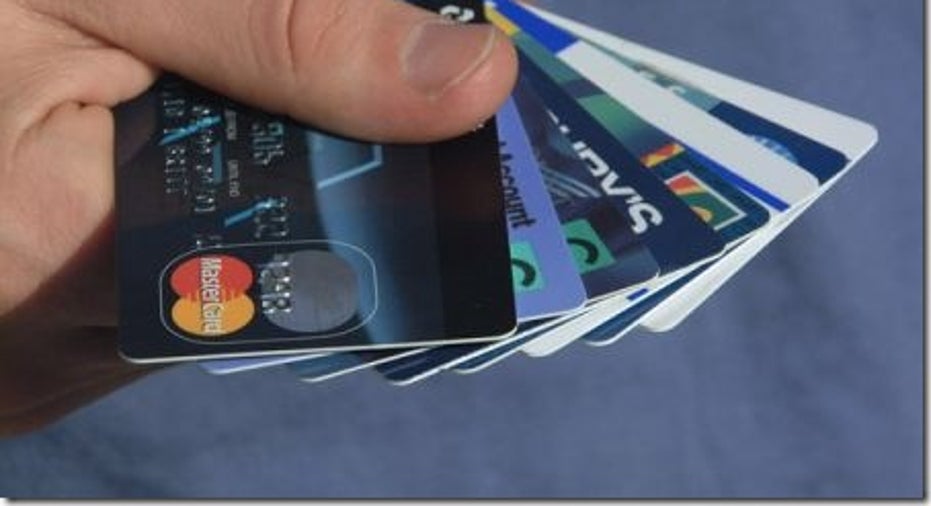Will Card Debt Scare off Student Loan Lenders?

Dear To Her Credit,
My 30-year-old former foster daughter is broke and has $6,000 in credit card debt. She is thinking about signing up with one of those rip-off debt consolidation agencies. She has no assets and no job.
What should she do? She wants to go back to school, and she is afraid if she just defaults, she won't get a student loan.
- Laura
Dear Laura,
"Just defaulting" -- not paying bills and leaving them unresolved -- is never a good idea.
The credit card companies will keep trying to collect. She will get calls and letters with increasing frequency, and eventually the companies may sue to collect from her. When she does get a job, they can garnish her wages. Her credit score will be trashed, and she'll be at least 37 before the unpaid debts drop off her credit history (seven years from the date of last activity).
A debt of $6,000 is not insurmountable if a person has a steady income. In fact, it's below the national average credit card debt balance for people who have consumer debt. With no income or assets, however, it doesn't matter if she owes $60 or $60,000. She still can't pay.
You're right that many debt consolidation agencies are a rip-off. Even if she found a reputable company, however, I don't think consolidation would work for her. Debt consolidation works by creating one loan at a lower interest rate to pay off all a person's consumer debts. The borrower then makes one payment on the new loan, instead of juggling half a dozen or more debts at different banks. However, with no income, she won't be able to make payments on the new loan, either.
Two other options for when a person can't pay a debt are debt settlement and bankruptcy. To successfully negotiate a debt settlement, your daughter would need some cash to settle with. Cross that off the list of possibilities, at least for now.
Even filing for bankruptcy requires money to pay the lawyer and court fees. In addition, $6,000 is not nearly a large enough debt, in my opinion, to warrant bankruptcy. The upfront fees, the damage to her credit and the hassle far outweigh the benefits of getting out of a debt of that size.
She might consider asking the credit card companies for a hardship plan if she is temporarily out of work. They may agree to reduced or suspended payments for a time. Whether or not they agree to a hardship plan, it's always better to stay in contact with the credit card companies than to just ignore them. Debts ignored don't go away. They grow -- fast!
What your daughter needs in the short term is a source of income. No doubt she is looking for a job already. I would urge her to not give up, and to expand her search as much as possible. She'll need to work, even if she goes to school. Many people keep applying for jobs similar to their last job. If that's not working, she should apply in different fields or even in different locations. Services such as landscaping and housecleaning are always in demand. Where I live, cleaning services charge $25 per hour, and many are so busy they're not taking new clients. It's almost always possible to find some kind of work, somewhere.
For the long term, going back to school is a fabulous idea. Deborah McNaughton, president of Professional Credit Counselors, advises against applying right off for a private loan application, even if her credit is bad. "A federal loan should be the first place a student should apply," she says. "This type of student loan does not have the same criteria as a private lender. The qualification criteria rarely involve a credit check and federal loans offer low interest rates. A federal loan bases the eligibility of the student by income history, family income, current education level and date of expected graduation."
Your daughter should complete the Federal Aid application (FAFSA form).
Her chances of getting a private student loan are already affected if she is behind on her credit card payments. McNaughton says, "If a private loan application is being made through a private bank, a negative credit report can affect your chances of getting the loan. A private lender will have similar criteria for qualifying for a student loan as a credit card company or mortgage company."
She could ask someone to co-sign on a student loan with her. If you are considering helping by co-signing, however, I urge you to be cautious. Don't co-sign for any amount you can't afford to pay. I regularly get letters from people who co-signed on loans, apparently not realizing that they're obligated to pay if the other party doesn't. And borrowers who need co-signers are unfortunately all too likely to leave those co-signers to pay the bill.
See related: Student loan co-signer on the hook for delinquency, 9 things you must know about debt consolidation



















